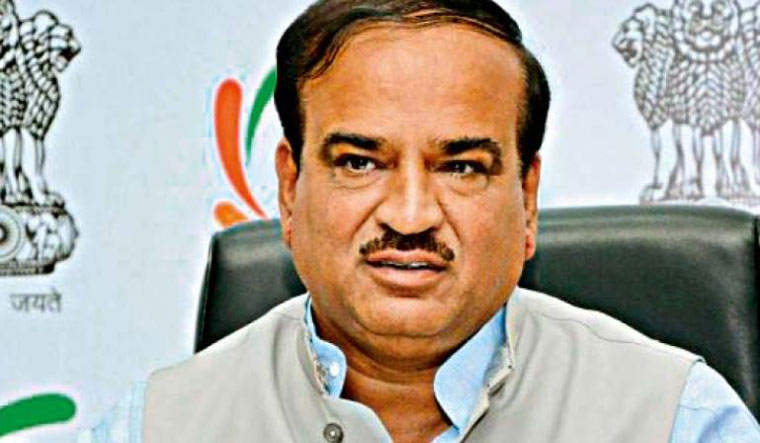Health infrastructure will multiply three-fold, pharma companies' turnover will double in five years and jobs will rain in the healthcare and pharma sectors, said Ananth Kumar, the Union minister for pharmaceuticals. All this, riding piggyback on the National Health Protection Scheme announced in Budget 2018-19, according to the minister.
Ananth Kumar, who also holds the portfolio of chemicals and fertilisers in the Narendra Modi cabinet, also has a role in converting the prime minister's promise of doubling farmers' income by 2022. His ministry has been working towards reducing the cost of urea, prevention of its diversion to the chemicals industry and ensuring its production increased. Fertiliser comprises 30 per cent of the cost of inputs of farmers. Neem coating at “Modi speed”, offering to buy excess urea produced at a slightly lower than the import price and reviving fertiliser plants that were shut for decades were steps they had taken with success, he said.
The jobs he listed pertained to health human resources comprising doctors, nurses, technicians and people at all levels in the diagnostic industry, their manufacture, marketing etc. “We should be ready for that,” he added on a very optimistic note.
Described by BJP leaders including Ananth Kumar as “Namocare”, it is planned to provide health insurance of Rs 5 lakhs each for 10 crore families. The minister said India was already the third largest manufacturer of pharmaceuticals in the world and exports to 215 countries. Drugs worth Rs 1 lakh crores were used by Indians.
While there were 10,000 pharma companies in the country, 1,200 of them were WHO certified and licenced to export. “We procure only from these certified companies for the Pradhan Mantri's Janaushadhi Scheme, so the quality of medicines we provide is assured,” Ananth Kumar said.
Under the Janaushadhi scheme, generic drugs are provided at government determined prices. “When we took charge, 200 types of medicines were provided. Now we are supplying 600 varieties of drugs and as many types of health supplements. The turnover in the Janaushadhi scheme was Rs 3 crore in 2014; now it is Rs 150 crore in terms of the subsidised price, otherwise Rs 600 crore. We have 3,166 Janaushadi Kendras, and our endeavour is to increase this,” Ananthkumar said providing details.
The minister also asserted Prime Minister Narendra Modi's determination to provide affordable medicines, and said capping the MRP of 1,085 medicines in the National List of Essential Medicines— generally referred to as the Life Saving Drugs—had resulted in savings to the tune of Rs 9,144 crore to the public. Similarly, the government had capped the price of stents that used to cost between Rs 1.25 lakh to 2.25 lakhs at Rs 31,000. On the Valentine's Day this year, it had been reduced to Rs 27,000, said Ananth Kumar, adding that they were enforcing this strictly. He insisted that the price of the stent and the procedure together be maintained at what prevailed in the six months prior to the cap notification. The government has warned the health sector players that an initial notice will be followed by criminal prosecution and possibly cancellation of licence.
So far, the government has left the custom made or tailored stent price untouched, given the economic status of people opting for them. Two years down the line, they may consider capping the price of such stents, too, he said.
India has six crore cardiac patients, ranging from neonates to the very senior citizens. The savings to them could be to the tune of Rs 6,000 crore.
“From when this cap was imposed, world class stents are being made in India. From 20 per cent, the production of them has gone up to 66 per cent,” he said.
The government has also capped the price of knee implants that ranged between Rs 1.55 lakh to Rs 8 lakh, at Rs 55,000, resulting in savings to the tune of Rs 5,900 crore, Ananthkumar said.
The government has also increased the number of institutes that turn out plastic engineers, who are in short supply the world over.


